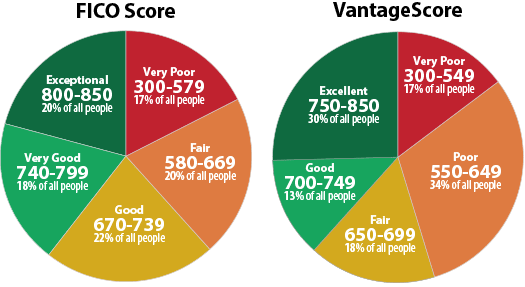Finding a new job can feel like a full time job in itself. First identifying companies and positions, then prepare your resume and cover letters.
The next most important step is to check your credit reports.
Employers usually check credit reports during the hiring process as a means to gauge the applicant’s responsibility with finances. Not all employers check credit reports during the employment screening process. But those that do, often check for positions that involve a security clearance, access to money, sensitive customer data or confidential company information.
An employment screening report only includes your account payment record, how much you owe, and your available credit. Potential employers can’t see your credit score. Follow these steps to prepare your credit before applying for a new job.
1. Obtain current credit reports
When you start looking for a new job, get a copy of your credit report. You should know appears on your report before a prospective employer obtains a copy. You can get a free report every 12 months from each of the three credit bureaus – Transunion, Experian and Equifax.
Review your reports for accuracy. If you see errors, dispute them directly with the reporting bureau. If you have negative listings like a car repossession or defaulted account, these should only stay on your report for 7 1/2 years.
2. Ask employer about credit checks
If you have negative credit listings and you’re concerned about the role they’ll play in your job search, contact your target companies anonymously and ask if they check credit as part of their candidate screening process. If you think it will be an issue, you might choose not to spend time on applications for a company that asks for your credit history.
3. Know your rights
Potential employers can ask for a copy of your credit file. However, there are guidelines that must be followed.
1) You must provide written permission for a company to request your report.
2) The company must notify you of the company that provide the employment screening report.
3) You may write to the screening report company to request a copy of the report that was used in the employment hiring process.
4. Take steps to improve your credit
Your job search will be easier in the future if you don’t have to worry about how your credit might affect your eligibility. Be proactive and evaluate your credit before applying for that new job.
-Review your credit file in advance.
-Make bill payments in full and on time.
-Use less than thirty percent of the credit that’s available to you.
-Maintain a healthy debt-to-income ratio.
-Dispute errors on your credit reports.
Seek Legal Help
Flitter Milz is a nationally recognized consumer protection law firm that represents victims with credit reporting accuracy problems. Contact Us for a free legal review of your credit reports and an evaluation of whether your consumer rights were violated.










